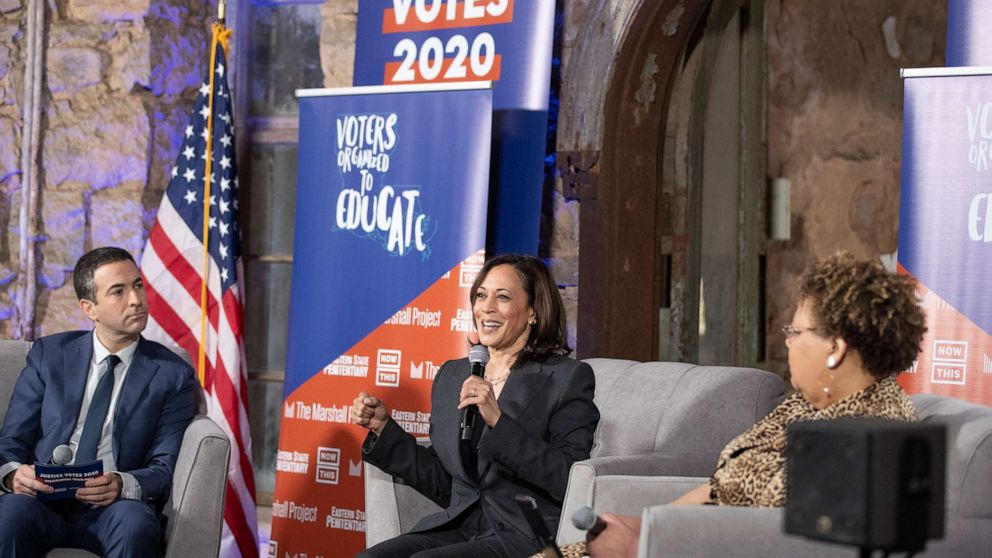2020 candidates discuss criminal justice reform from the cell block to the ballot box
Philadelphia, PA -- The cell blocks at the Eastern State Penitentiary are empty now, and have been for years, but new voices filled the vaulted halls, as 2020 Democratic candidates came to the prison on Monday -- to talk about reforming its future -- with people who were once incarcerated.
Sen. Kamala Harris, D-Calif., Sen. Cory Booker, D-NJ., and billionaire Tom Steyer all attended the forum inside the penitentiary. They, like their fellow 2020 contenders, have worked to make justice reform efforts a part of their platform, backing the end of cash bail, the private prison complex and the legalization of marijuana.
But Monday’s event was the first of its kind, attended by those who have experienced the criminal justice system from the inside.
“We have taken our national treasure and plowed it into the black hole of locking human beings up unjustly.” Booker told the gathering.
Harris spoke of the spirit of mercy.
“If we are going to be a nation that is true to our stated values … values that include issues like the age-old concept of redemption,” Harris said, “the incarceration system in America has not been humane and has not lived up to those values and must be reformed.”
This comes on the heels of a criminal justice forum which Harris threatened to boycott, because President Trump was receiving an award; however she was the first to RSVP to Monday's Justice Votes town hall.
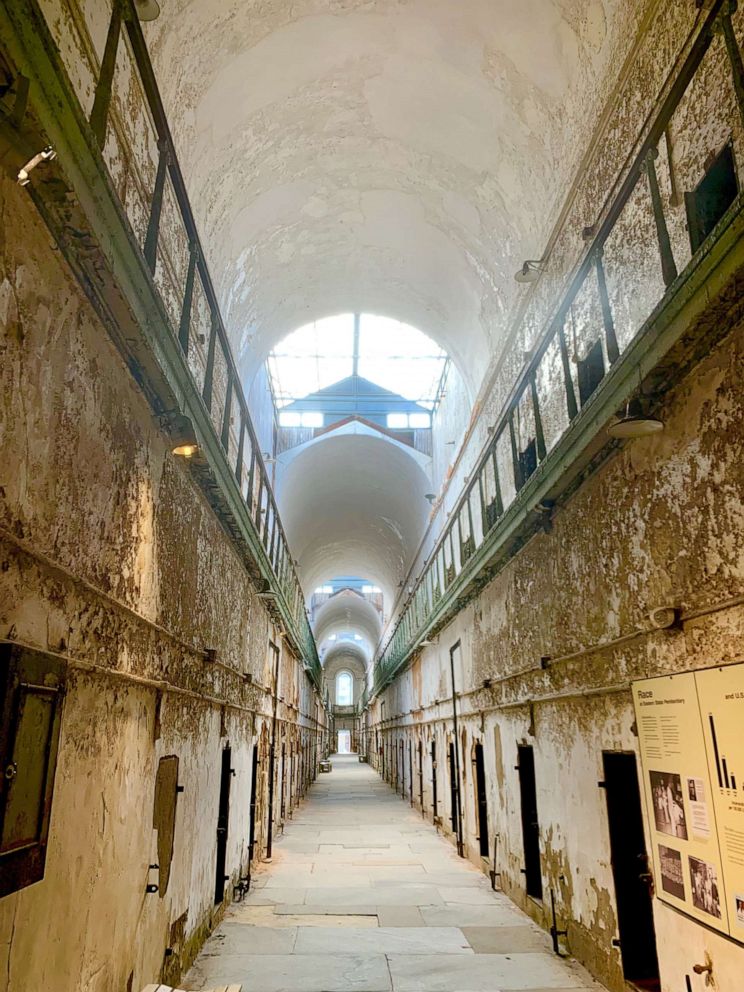
Those who have experienced the impact of incarceration first-hand opportunity to confront the candidates pitching themselves to win votes -- to an audience for whom voting itself remains an open question.
“I live and breath this, so being able to see what was a soundbite from some of these candidates versus actual action we can hold them accountable to... that’s exciting and I think we need more opportunities like this,” Brandon Holmes told ABC News. Many of his family members and friends - from his father, to his cousin - have been incarcerated and he’s seen how it’s torn at the family’s fabric.
“We always say those closest to the problem are closest to the solution, but we’re often the furthest from power or resources to wield power or wield levers to create change in America.”
Voting rights for former inmates varies state by state. While some states restore voting rights to ex-offenders automatically after they finish their sentence, others bar voting through a former inmate's probation or parole. There are instances when the right to vote is lost indefinitely, often dependent on the jurisdiction or type of crime conviction, according to the National Conference of State Legislatures.
Last year Florida voters approved amendments to the state constitution to let people with felony convictions regain the right to vote, but it was quickly countered by legislators passing a series of sharp restrictions that would hamper ex-felons from reaching the polls.
Moreover, the racial and economic disparity is vast: African Americans are incarcerated at more than five times the rate of whites, and serve longer sentences; impediments to re-enfranchisement like poll taxes hit low income offenders first.
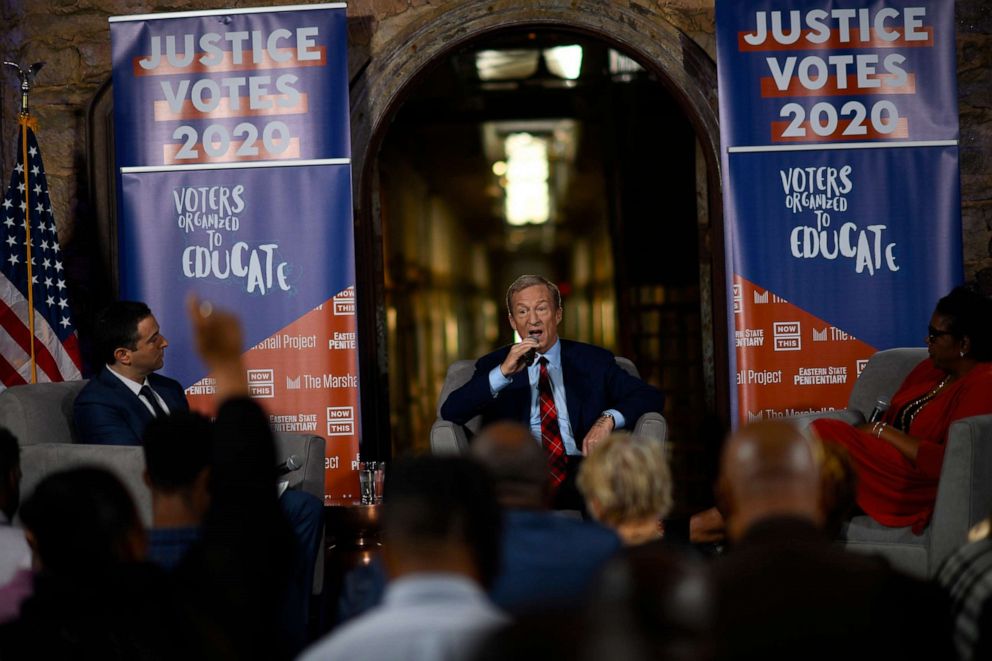
Monday at the penitentiary, candidates came to address the breadth and depth of these issues, from sentencing reform for violent crime committers, to civil rights for those coming out of prison; they fielded tough questions about their own past as well.
Steyer grew his fortune through his hedge fund Farallon Capital, where he made high-risk investments in distressed assets. In his portfolio, a large investment in the private prison complex - $34 million in 2005, in a for-profit prison firm called Corrections Corp. of America, which runs migrant detention centers on the U.S.-Mexico border, which have come under sharp criticism by Democratic presidential candidates this year.
Steyer retired from the firm in 2012; he has said he "deeply regret[s]" his investment in CCA.
“I made a mistake,” he told the crowd. “I was wrong… and so, I corrected it on my own.”
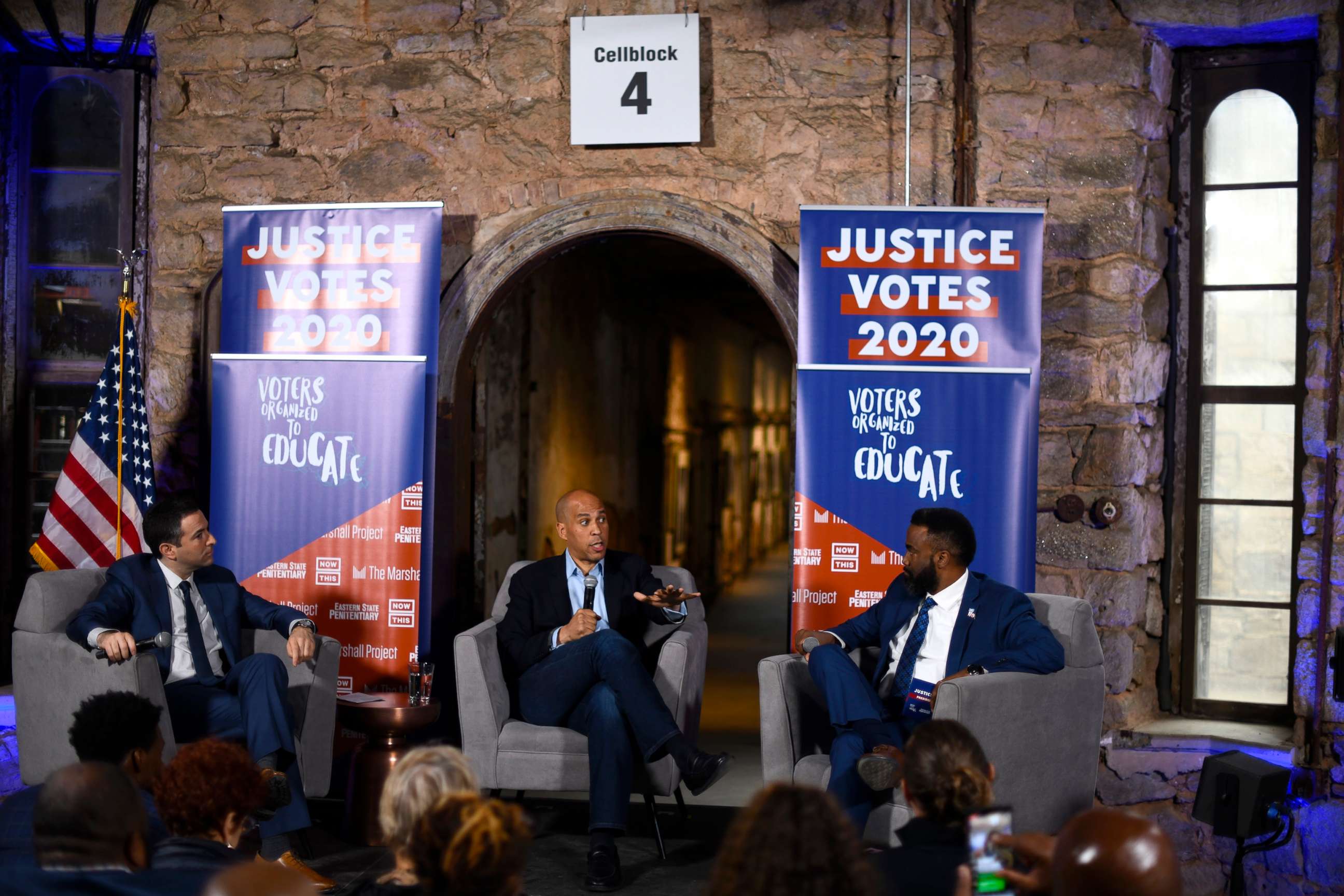
Harris faced a question form a moderator on whether she went too far in her policies as either prosecutor or as California's attorney general.
“There are a lot of people who have language now about it, but I would ask you to challenge them to tell---ask them what have they actually done to reform the criminal justice system? And then I will have more of a conversation with you about my record,” she responded.
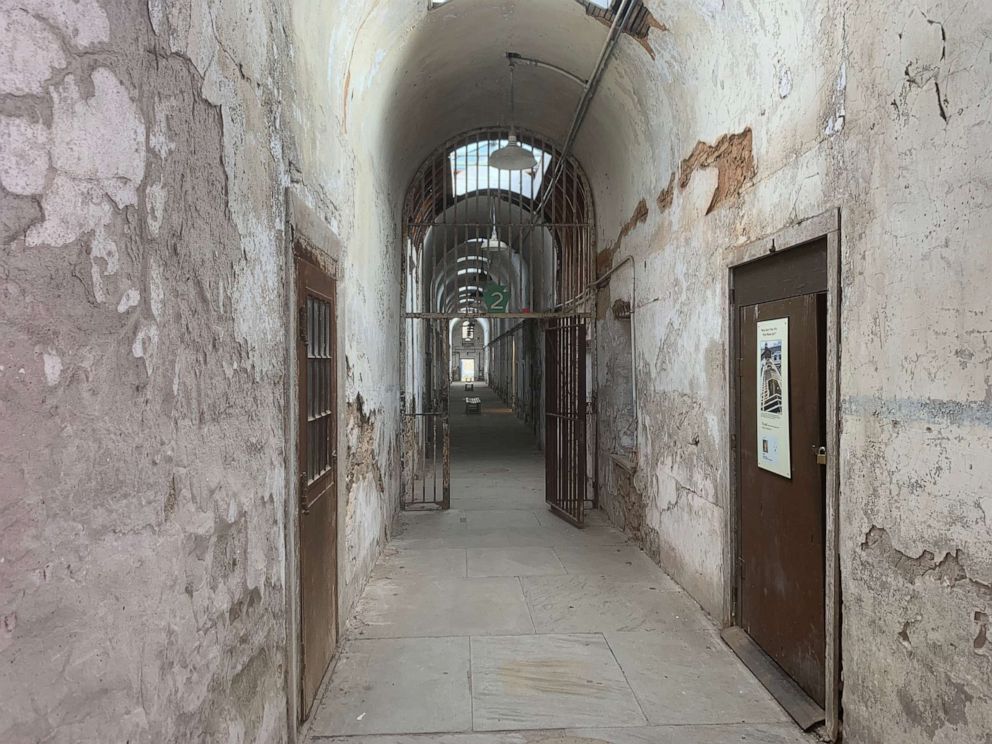
Booker on stage called out his fellow 2020 contenders who did not show up -- out of the wide and slowly winnowing Democratic field, three candidates spoke at the town hall Monday.
“Where are you today?” he asked of his primary rivals. “Where are you? Sincerely. This is a major national crisis… I am surprised and angry,” he said. “This is a chance to have a conversation with formerly incarcerated people, and we have three candidates showing up. That is unacceptable,” he said, “And it speaks to the Democratic Party’s failures on criminal justice over the years. There should be more here... And again, cast -- continues to cast a shadow over our party’s conviction and commitment on these issues.”
